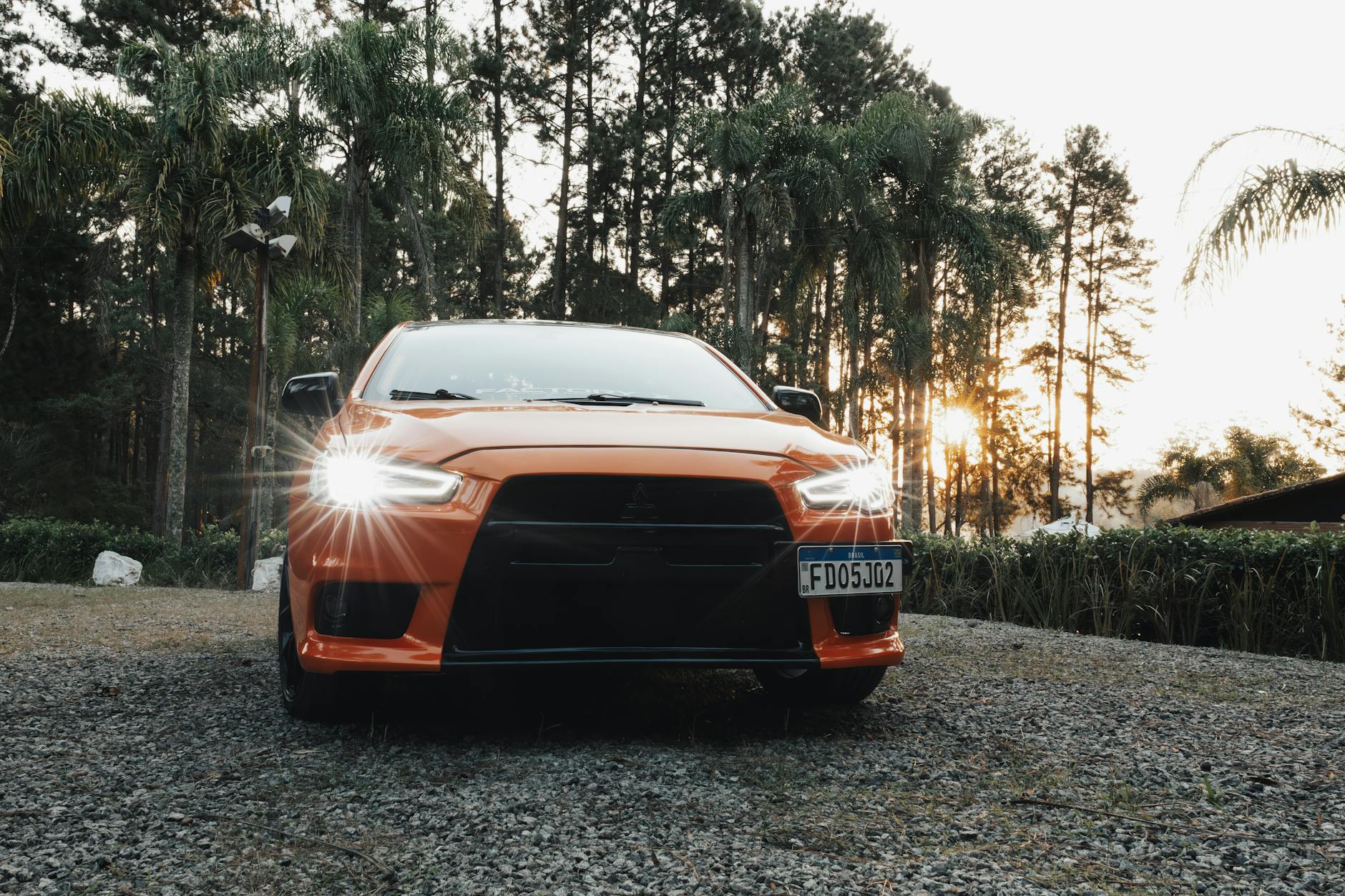Understanding Car Financing Options
When it comes to financing a new car, there are several options available to you. Understanding these options can help you make an informed decision, especially if you are dealing with unfair pcp car leasing rates.
Types of Car Financing
There are various types of car financing options available, each with their own advantages and disadvantages. Here are the most common types:
- Personal Contract Purchase (PCP): PCP is currently the most frequently used financing method for new cars. It allows you to pay lower monthly payments with an option to buy the car at the end of the term.
- Personal Contract Hire (PCH): Also known as leasing, PCH is becoming increasingly popular. Leasing doesn’t count towards car finance data as no money is being borrowed.
- Hire Purchase (HP): HP is a method where you pay an initial deposit followed by fixed monthly payments. The car becomes yours at the end of the contract.
- Conditional Sale: Similar to HP, but the ownership of the car automatically transfers to you once all payments are made.
Popular Car Financing Methods
Over the years, the popularity of various car financing methods has shifted. Here’s a comparison of the most popular methods:
| Financing Method | Popularity | Key Features |
|---|---|---|
| Personal Contract Purchase (PCP) | Most Popular | Lower monthly payments, option to buy |
| Personal Contract Hire (PCH) | Increasing | Leasing, no ownership |
| Hire Purchase (HP) | Decreasing | Fixed monthly payments, ownership at end |
| Conditional Sale | Less Common | Ownership transfers after final payment |
Figures courtesy Vehicle Contracts
PCP has become the go-to option for many, but it’s essential to also consider the alternatives like PCH and HP. For those looking for more detailed comparisons, visit our articles on pcp vs hp and pcp car finance comparison.
Choosing the right financing option can be complex, but understanding the basics can guide you towards the best choice. If you need more information on PCP, check out our guide on personal contract purchase (pcp).
Personal Contract Purchase (PCP) Explained
Understanding Personal Contract Purchase (PCP) is essential for anyone considering this popular car finance option in the UK. Here, we break down what PCP is, how it works, and its benefits.
What is PCP?
PCP, or Personal Contract Purchase, is a car finance option that allows you to drive a new or used car with lower monthly payments compared to traditional auto loans. In a PCP agreement, you pay a deposit (usually around 10% of the car’s value) and then make fixed monthly payments over a term that typically ranges from two to four years. At the end of the term, you have three options:
- Return the car to the dealer.
- Pay a final lump sum, often referred to as a balloon payment, to own the car outright.
- Use any equity in the car as a deposit on a new PCP agreement.
How PCP Works
PCP agreements are structured around the depreciation of the car rather than its full value. This means you are primarily financing the difference between the car’s initial value and its predicted future value at the end of the contract term. This structure results in lower monthly payments compared to other financing options (Road Angel Group).
Key Components of a PCP Agreement:
| Component | Description |
|---|---|
| Deposit | Typically 10% of the car’s value, paid upfront. |
| Monthly Payments | Fixed payments over the term, covering the depreciation. |
| Balloon Payment | Final lump sum to own the car outright, optional. |
| Mileage Limit | Agreed-upon mileage; exceeding can incur extra charges. |
| Equity | Potential value built up in the car, usable as a deposit on a new PCP agreement. |
Benefits of PCP
PCP offers several advantages that make it an attractive car finance option:
- Lower Monthly Payments: Since you’re financing the depreciation rather than the full value of the car, monthly payments are generally lower. This can make higher-end vehicles more accessible.
- Flexible End-of-Term Options: At the end of the contract, you can choose to return the car, make the balloon payment to own it outright, or use the equity as a deposit on a new PCP agreement. This flexibility allows you to adapt to changing circumstances.
- Potential to Build Equity: If the car’s value holds up better than expected, you could have equity in the vehicle at the end of the term. This equity can be used towards a new PCP agreement, reducing the upfront costs of your next car.
For further insights on PCP agreements and how they compare to other financing options, check out our detailed guides on PCP car leasing and PCP car finance explained. If you’re considering a PCP agreement, you can also use our PCP calculator to estimate your potential payments.
Factors Influencing PCP Agreements
Personal Contract Purchase (PCP) agreements are influenced by several critical factors. Understanding these can help you navigate the complexities of PCP car leasing rates and ensure you make an informed decision.
Interest Rates and APR
Interest rates and Annual Percentage Rate (APR) significantly impact the cost of a PCP agreement. The APR for PCP agreements typically ranges between 5% and 10%, depending on various factors such as your credit score and the lender’s terms. Unlike Personal Contract Hire (PCH) deals, which do not involve an APR as you are not purchasing the vehicle, PCP agreements involve borrowing money, thus incurring interest.
| Financing Option | Typical APR Range |
|---|---|
| PCP | 5% – 10% |
| HP | 10% – 15% |
| Personal Loan | 5% – 15% |
For more details on how APR affects your car finance, visit our article on pcp car finance rates.
Deposit Requirements
The deposit you make at the beginning of a PCP agreement can also influence the overall cost. Typically, the higher the deposit, the lower your monthly payments. Deposits usually range from 10% to 20% of the car’s value, but this can vary based on the lender’s terms and your financial situation.
| Deposit Percentage | Impact on Monthly Payments |
|---|---|
| 10% | Higher |
| 20% | Lower |
To calculate how different deposit amounts affect your monthly payments, use our pcp calculator.
Mileage Limitations
Mileage limitations are a key factor in PCP agreements. Exceeding the agreed-upon mileage can result in additional charges at the end of your contract. These limitations are set to protect the car’s residual value, which is a crucial component of the final balloon payment.
| Annual Mileage | Typical Excess Mileage Charge |
|---|---|
| 10,000 miles | £0.06 – £0.10 per mile |
| 15,000 miles | £0.06 – £0.10 per mile |
For more information on how mileage limitations can affect your PCP agreement, visit our guide on pcp car leasing.
Understanding these factors can help you make an informed decision when entering into a PCP agreement. For further reading, explore our articles on pcp car finance explained and pcp car leasing deals.
Comparing PCP with Other Financing Options
Understanding the nuances between different car financing options can help you make an informed decision. Here, we compare Personal Contract Purchase (PCP) with other popular car financing methods: Personal Contract Hire (PCH), Hire Purchase (HP), and Conditional Sale.
PCP vs. Personal Contract Hire (PCH)
Personal Contract Hire (PCH), also known as leasing, is becoming increasingly popular among private customers. Unlike PCP, where you have the option to purchase the car at the end of the contract, PCH involves only leasing the vehicle for a fixed period.
- Ownership: With PCH, you do not own the car at the end of the contract. You simply return the vehicle.
- Costs: Leasing is often more affordable and cost-effective compared to PCP. You pay a down payment, monthly payments, and standard operating expenses like fuel, insurance, and maintenance.
- Interest Rates: Unlike PCP, there is no APR directly applied to a lease deal because you aren’t borrowing any money (Leasing.com).
For more information, visit our page on pcp car leasing.
| Feature | PCP | PCH |
|---|---|---|
| Ownership | Option to buy | No ownership |
| Initial Deposit | Required (around 10%) | Required (varies) |
| Monthly Payments | Generally higher | Generally lower |
| End of Term | Buy, return, or trade-in | Return only |
PCP vs. Hire Purchase (HP)
Hire Purchase (HP) is ideal for those who wish to own the vehicle at the end of the contract.
- Ownership: With HP, you own the car outright after making all the payments and paying an optional purchase fee (Hippo Leasing).
- Costs: HP agreements generally have higher monthly payments compared to PCP, but there are no mileage restrictions.
- Equity: With PCP, you may build up equity in the car, which can be used as a deposit for a new PCP agreement.
Explore our comparison on pcp vs hp.
| Feature | PCP | HP |
|---|---|---|
| Ownership | Option to buy | Ownership after final payment |
| Initial Deposit | Required (around 10%) | Required |
| Monthly Payments | Lower | Higher |
| Mileage Restrictions | Yes | No |
PCP vs. Conditional Sale
Conditional Sale is similar to Hire Purchase but with a key difference regarding the option to purchase fee.
- Ownership: With a Conditional Sale, the vehicle is registered in your name, and you own the car once all payments are made.
- Costs: Typically, there is no ‘option to purchase’ fee at the end of the term, unlike HP.
- Flexibility: PCP offers more flexibility with the option to return, buy, or trade-in the vehicle at the end of the term.
For detailed insights, visit our page on pcp car finance comparison.
| Feature | PCP | Conditional Sale |
|---|---|---|
| Ownership | Option to buy | Ownership after final payment |
| Initial Deposit | Required (around 10%) | Required |
| Monthly Payments | Lower | Higher |
| End of Term Options | Buy, return, or trade-in | Own the car |
By understanding these differences, you can choose the financing option that best suits your needs. For more details, check out our articles on pcp car finance and pcp car leasing deals.


